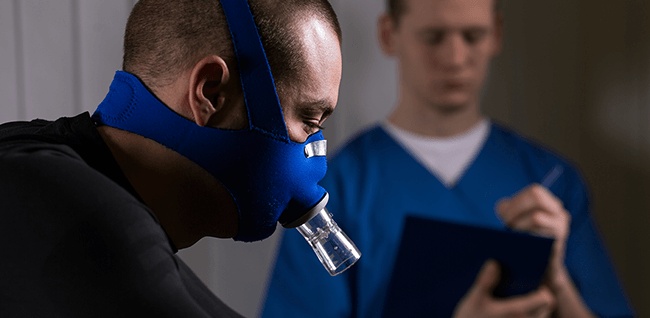In this blog post, we’re going to look at a study that explores respiratory muscle training (RMT) as a preoperative measure to reduce PPC in patients undergoing coronary artery bypass graft (CABG) surgery. Let’s take a more in depth look at the study below.
Key Findings
- Postoperative pulmonary complications (PPC) such as pneumonia greatly contribute to morbidity and mortality.
- Patients undergoing coronary artery bypass graft surgery received at least 2 weeks of respiratory muscle training (RMT).
- Preoperative RMT led to increased respiratory muscle strength, and reduced PPC incidents by 50%.
- Preoperative RMT reduced postoperative pneumonia by 59% and reduced the hospitalization duration.
Patient Impact
RMT effectively reduces PPC including pneumonia and duration of hospital stay.
Study Methods
Patients scheduled for CABG surgery received at least two weeks of RMT with an inspiratory muscle trainer starting at low intensity with incremental increases in alignment with reduced perceived exertion during RMT. PPC data and duration of hospitalization were collected until patient discharge, and PImax (inspiratory muscle strength) and Pmpeak (muscle endurance) were assessed at baseline and at time of surgery. All data was compared to a control group receiving standard care without RMT.
Study Results
PImax and Pmpeak significantly improved due to RMT. PPC were reduced by 50% when compared to the control group. The occurrence of pneumonia in particular, which was included in the PPC parameters, was reduced by 59%. The duration of hospitalization was also significantly reduced among participants in the active group.
Preoperative RMT of at least two weeks significantly reduces the risk of developing PPC and pneumonia after surgery, and also serves to reduce the duration of the patient’s hospital stay. Preventative RMT therefore has a direct impact on postoperative mortality and morbidity, and on resource utilization and health-care costs.
References
Hulzebos EHJ, et al. Preoperative intensive inspiratory muscle training to prevent postoperative pulmonary complications in high-risk patients undergoing CABG surgery. JAMA 296, 1851–1857 (2006).

0 Comments